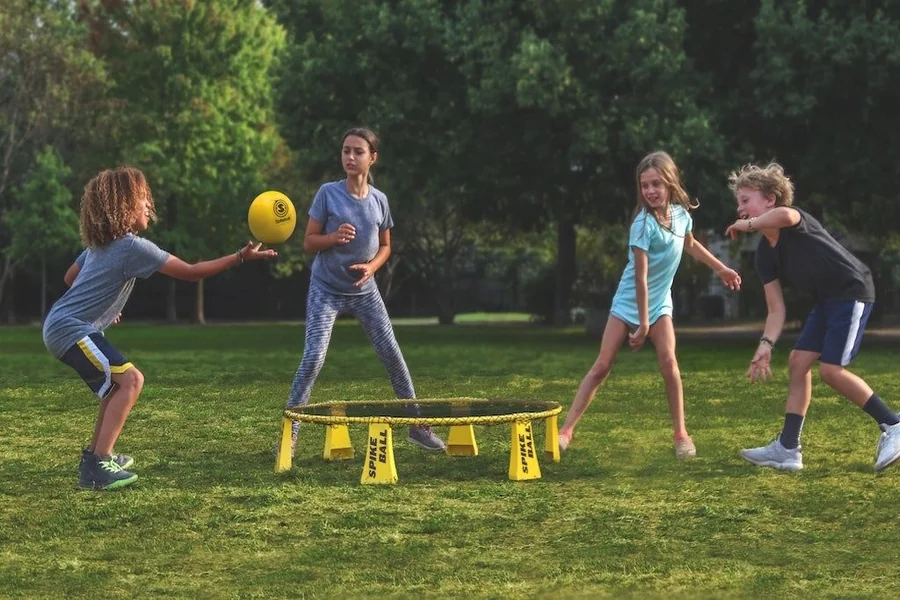Starting a sport as a kid can be a huge mix of excitement and nerves. There’s new gear, new friends, and plenty of skills to learn. Whether a child dreams of scoring goals or simply wants to enjoy playing, the right support can make a big difference in their growth and happiness on the field.
So, what can parents, coaches, and even the kids themselves do to help things go smoothly? Let’s look at some easy, practical tips.
Make It Fun First
One of the most important things in children’s sports is keeping the experience enjoyable. Sure, winning can feel great, but focusing too much on scores or rankings can take the fun out of the game.
Kids stick with sports when they’re having a good time. They’ll naturally want to improve when they’re enjoying themselves. Ask yourself: Is your child smiling at practice? Do they talk excitedly about their teammates? If the answer’s yes, they’re on the right track.
Focus on Skill Building
Starting with the basics helps young athletes build a solid foundation. Whether it’s learning how to dribble, pass, or balance, mastering these early skills sets them up for success later.
Encourage practice that feels playful instead of pressured. For example, backyard games or friendly one-on-one challenges can keep things light while still building confidence.
Choosing programs that focus on supportive pathways for young athlete development can also help kids grow at their own pace while learning proper techniques.
Encourage Rest and Recovery
Kids can get caught up in wanting to play all the time, especially when they’re passionate. But rest is just as important as practice. Overdoing it can lead to burnout or injuries that slow progress down.
Make sure there’s room in the week for downtime. A mix of active days and restful ones helps bodies recover and keeps sports feeling enjoyable rather than exhausting.
Teach the Value of Teamwork
No matter the sport, working together is key. Helping kids understand how to communicate, support their teammates, and share responsibilities makes the experience more rewarding.
Simple things like cheering for others, passing the ball, and showing good sportsmanship help build strong, positive habits that go far beyond the field.
Let Them Try Different Sports
Some children know what they love from the start, but many need time to explore. Trying different activities lets kids discover what really excites them and gives their bodies the chance to develop a variety of skills.
Swapping sports seasonally or mixing in different activities like swimming, running, or gymnastics can help avoid overuse injuries and keep things fresh.
Support Without Pressure
It’s natural to want to cheer from the sidelines, but too much pressure can make kids nervous or take the joy out of playing.
Instead of focusing on winning or comparing them to others, try encouraging their effort and attitude. Phrases like “You played with so much energy!” or “You really helped your teammate today!” go a long way in boosting confidence.
Keep Nutrition Simple and Balanced
Growing athletes need fuel, but that doesn’t mean things have to get complicated. A balance of fruits, vegetables, grains, proteins, and plenty of water usually does the trick.
Having healthy snacks on hand before or after practice can help with energy and recovery. Things like yogurt, nuts, sandwiches, or fruit make great, easy options.
Understand Common Sports Injuries
Kids are naturally active, and sometimes accidents happen. Being aware of common sports injuries in children can help parents and coaches spot early signs and know when to rest or seek help.
Simple steps like proper warm-ups, wearing the right gear, and listening to any complaints about pain can make a big difference in keeping young athletes safe and happy.
Let Kids Lead
Sometimes the best support is simply stepping back. Letting children choose their sport, their position, or whether they want to keep playing at all helps build independence and self-awareness.
When kids feel like their voice matters, they’re more likely to stay motivated and enjoy their time on the field or court.
Supporting young athletes doesn’t need to be complicated. A focus on fun, learning, balance, and listening often gives kids exactly what they need to grow confidently in sport and in life.

